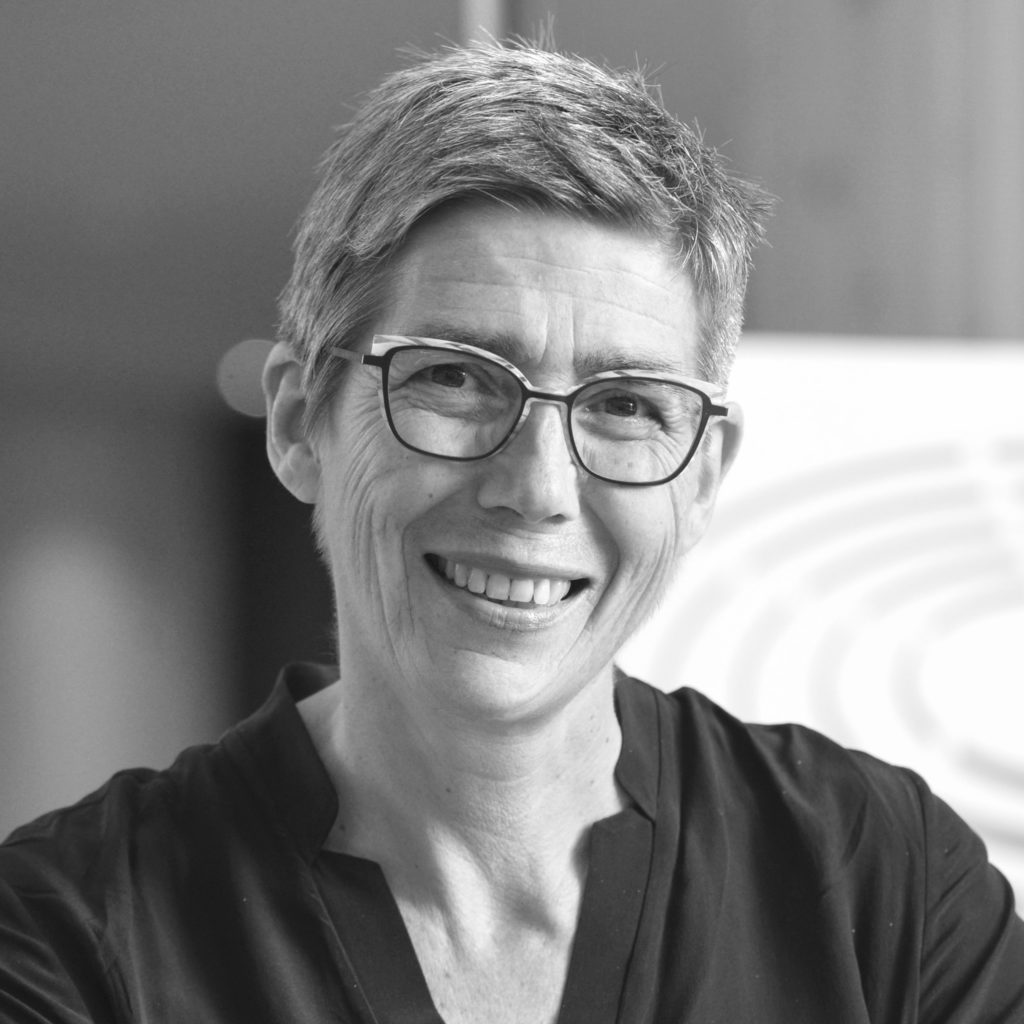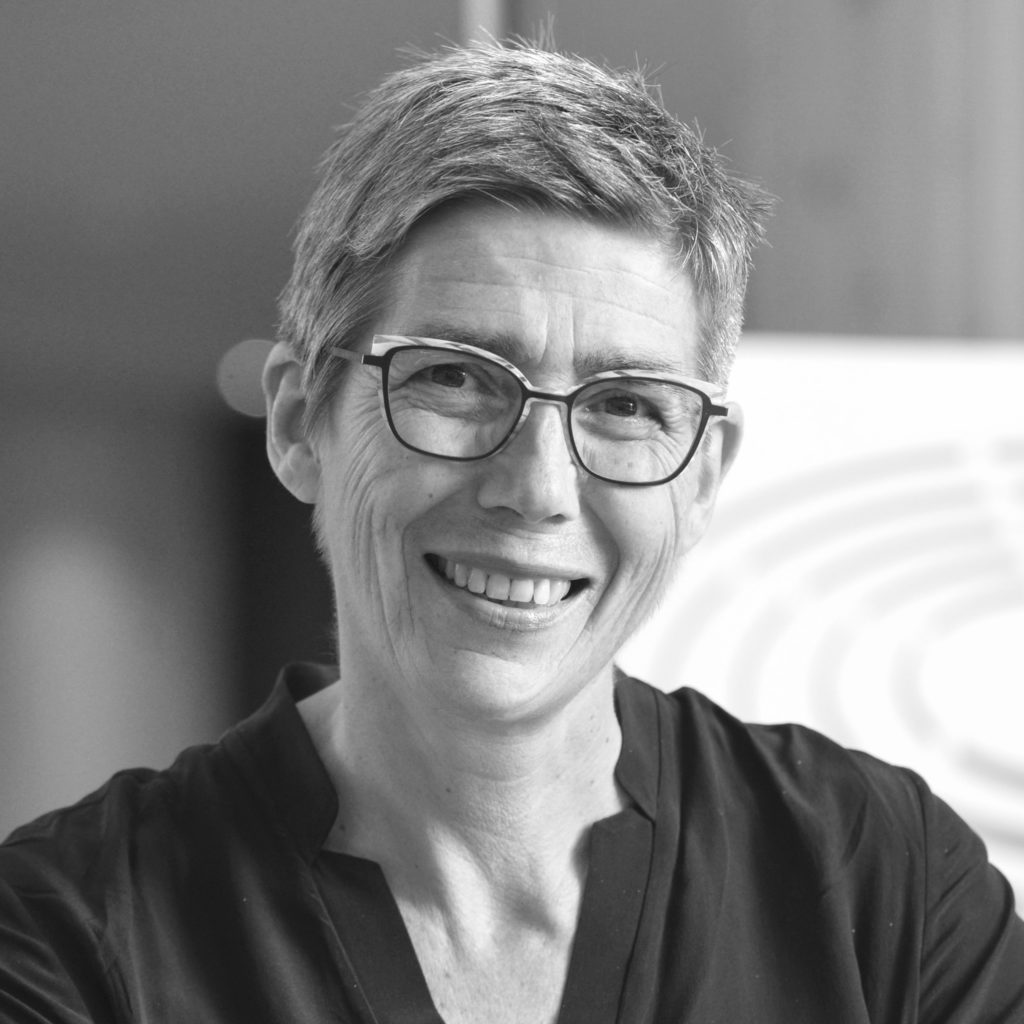Meet Jutta Paulus, MEP & jury member for the Roger Léron Award!

Jutta Paulus is a member of the European Parliament for the Greens, elected in 2019. She is a member of the Committee on the Environment, Public health and food safety. She belongs, at national level, to the German Party Bündnis 90/Die Grünen, where she is a delegate for the Federal working group on energy. She is also the spokeperson of the Executive Regional Council for Rheinland-Pfalz since May 2017. She started her career as a pharmacist, co-founded an independent laboratory working on ecotoxicology and the examination of chemical hazards. After 20 years of quality management, she decided in 2012 to engage deeper in her political , both at the local, national and european level. Jutta Paulus is a new jury member of the Roger Leron Award for this 6th edition.

During your career, what are the main changes and evolutions you have witnessed in the field of renewable energy?
When I became politically aware through the Chernobyl disaster in 1986, virtually no one was thinking of wind and solar energy as a replacement for nuclear power plants. In the 90s, the first modern wind mills were installed in Germany, delivering kilowatts and resembling toys when compared with today’s multi-megawatt turbines. In photovoltaics, there have been tremendous developments since 2000, when I first applied for a feed-in tariff for a PV system on my roof. 20 years ago, no one imagined that even small-scale solar energy would be competitive to electricity bought from the grid. Creating demand from citizens who wanted to bring forward the energy transition led to a tremendous scale-up in production. This made the degression in cost possible. Today, renewable energy is the least expensive choice in most countries around the world. And in 2019, wind alone produced almost twice as much electricity in Germany as the seven remaining nuclear power plants. Renewables challenge the fossil-nuclear power system, hurting the traditional energy companies. As they start to realise their losses in market share, they use their connections to political leaders to promote ever new regulations to restrict de-centralised, citizen-owned electricity generation. But the energy transition community does not give up, and after the approval of the EU Clean Energy Package, citizens’ energy will thrive even more when all member states have implemented this legislation. The famous quote of Mahatma Gandhi holds true for renewables: “First they ignore you, then they laugh at you, then they fight you – and then, you win.”
Currently, in several EU countries, an important issue relates to the public acceptance of renewable energy infrastructure. How should this challenge be addressed at the EU level?
The experience from Germany shows that public acceptance is closely related to participation. When citizens are informed in the very beginning, when they can have a say e.g. in the spatial planning of wind parks, when they can become co-investors even with small sums, most people have no problem with renewable energy infrastructure. Therefore, the EU should support Member States in developing best practice models for citizens’ participation. The basis is a good implementation of the Clean Energy Package. In the upcoming revision of the State Aid guidelines on Energy and Environment in 2021, the role of energy communities and citizens’ energy must be properly addressed. Clear and unambiguous rules for their projects ensure that these important actors can play their role in the energy transition. The necessary counterpart are effective rules to really phase out all subsidies for fossil fuels, also in capacity mechanisms.
One important aspect in the evaluation of the candidates of the Roger Léron is their capacity to overcome barriers to advance the energy transition. What are the challenges you had to address in the course of your professional career?
I must put in front that I never earned my living from renewable energy. Asides from my own PV plants, I got involved in an energy cooperative, but on a volunteer base only. When I applied for a loan for my first PV system, my bank was determined not to finance “hobbies which will never become economically viable”. It took some effort and a well-filled Excel file to convince them that they would actually get their money back. Our energy cooperative was among the first in Germany that started a “tenant electricity project”. Following the example of a befriended pioneer cooperative, we built PV systems on the roofs of apartment buildings and the tenants can buy solar power from their own roof for a very good price. It took me several meetings with the local grid operator, countless phone calls with the main customs office (who are responsible for the electricity tax collection) and finding a very innovative solar installer. In the end, however, we built the first “Mieterstrom” project in my hometown, and the local energy company (“Stadtwerk” in Germany) followed suit, so that even more people without a privately owned home can participate in the energy transition.
With the Roger Léron Award, we also take into consideration the impact of the action of the nominee on its territory and its visionary approach. In that sense, how do you think one can raise citizens’ awareness about sustainable energy and involve them further in the energy transition?
Judging from the situation in Germany, I would put “debunk myths” at the forefront of the necessary action: Many people think that renewable electricity is frightfully expensive. Energy companies relying on fossil fuels claim that the grid would not be able to handle more than 20/40/60 % (choose your number) of renewables before breaking down. Even the somewhat absurd belief that the production of a solar panel needs more energy than the panel will ever harvest is still widespread. As pointed out before, creating low-threshold possibilities for residents to participate in local renewable energy projects is crucial. In Germany, hundreds of energy cooperatives are open for everyone, and usually, the minimum investment sum lies well below 1.000 €. Legally, they are organised in a democratic fashion, with every member having one vote in the general assembly, regardless of the amount of his or her investment.
But the most important point: People have to understand that politics alone will not be able to solve the climate crisis. All of us have to be part of the solution!
Jutta Paulus is an inspiring figure of the energy sector, working every day towards the fight against climate change. All together, jury members of the Roger Léron will have the occasion to shed light on an outstanding individual for its particular implication at the local level regarding the Energy Transition. This is also the occasion to help raising awareness on the importance of a global action from the society as a whole in order to solve the climate crisis! So who will be the nominees this year, and who will the jury select as the winner of the 6th edition of the Roger Léron?
If you think you know that person, don’t forget to nominate him/her!
You have until May 29th. More information here.
The post Meet Jutta Paulus, MEP & jury member for the Roger Léron Award! appeared first on Fedarene.
Fuente: FEDARENE
Enlace a la noticia: Meet Jutta Paulus, MEP & jury member for the Roger Léron Award!

